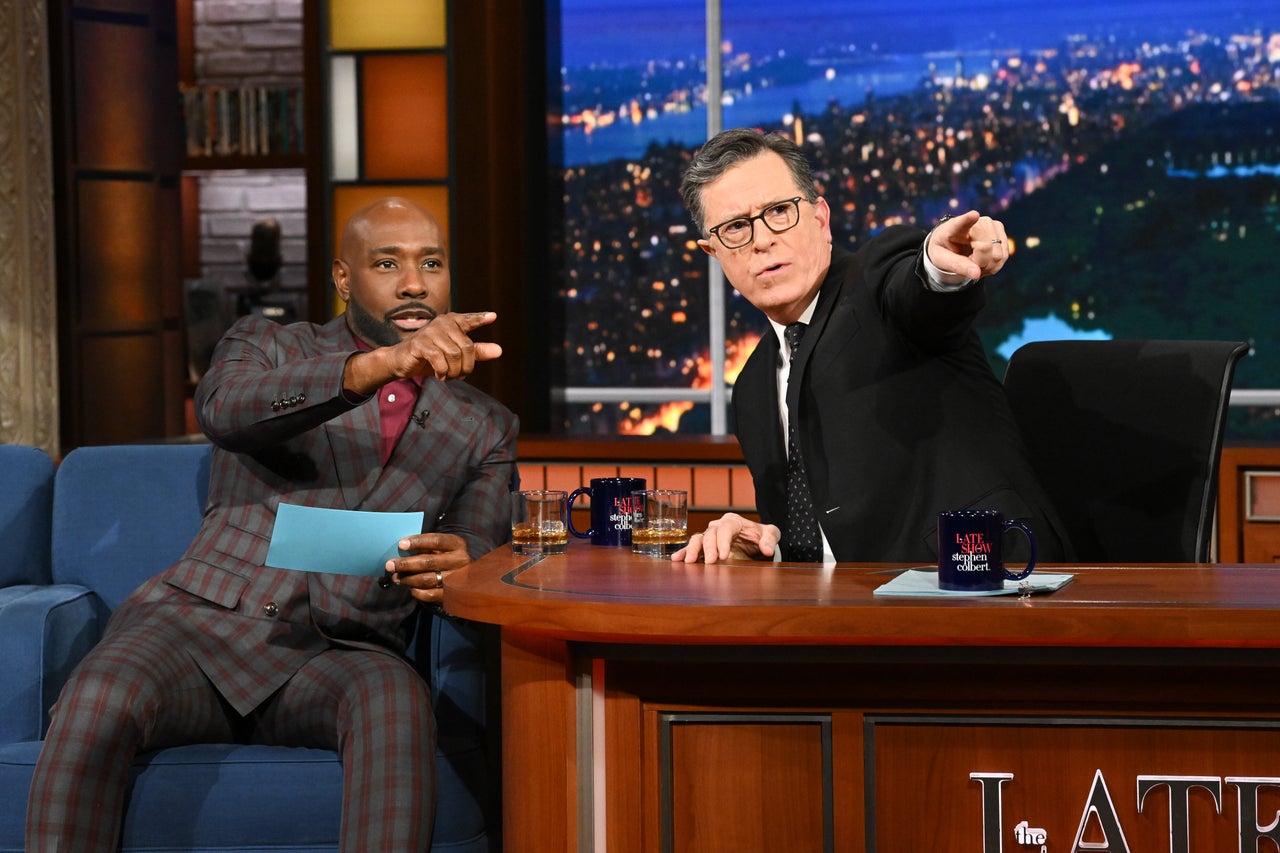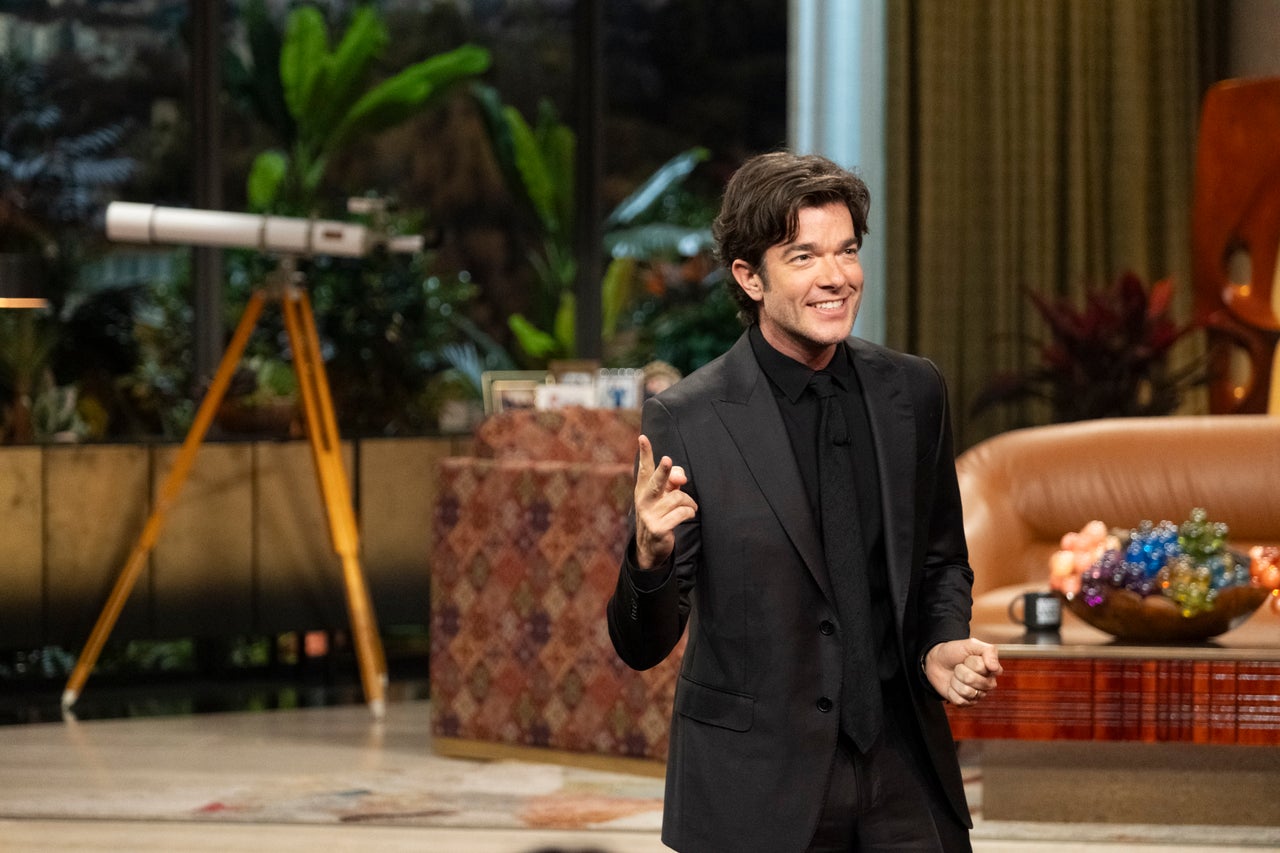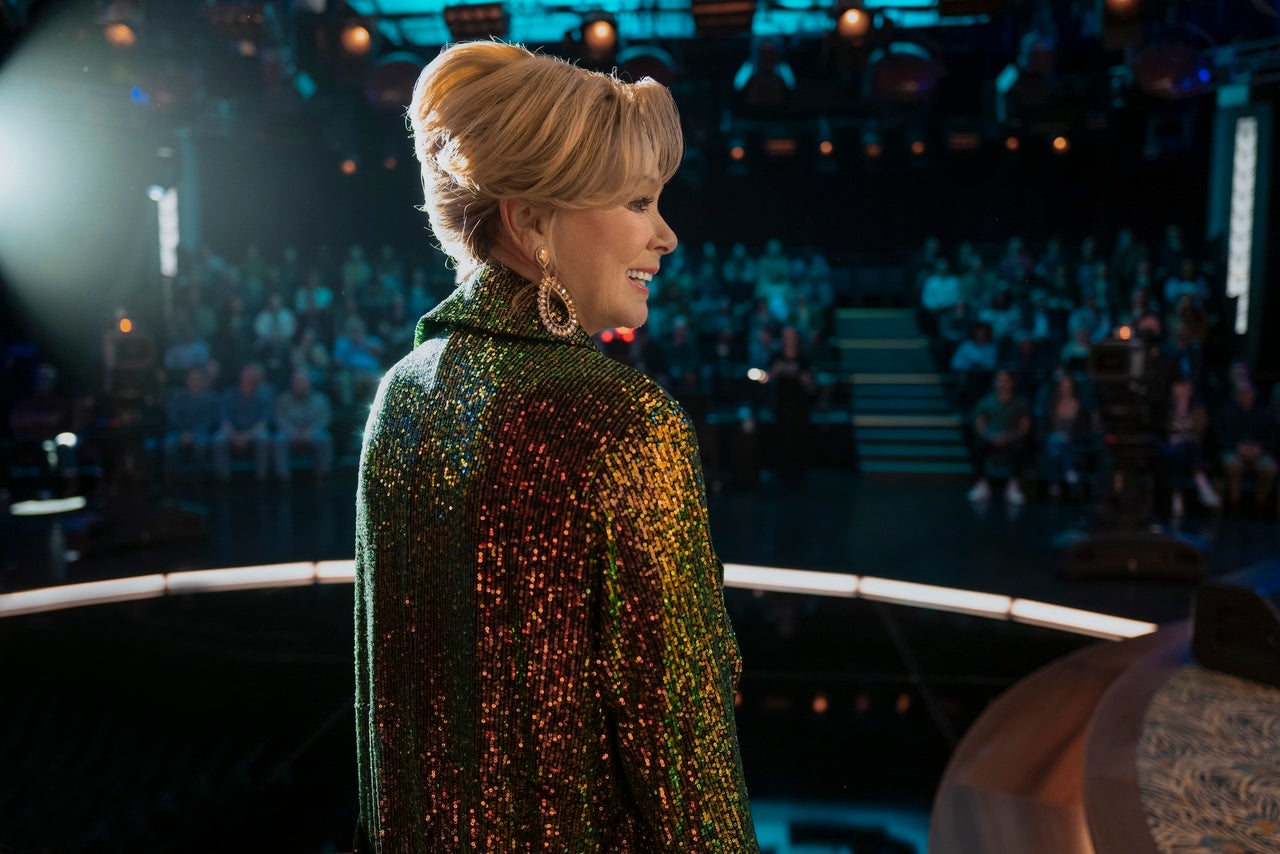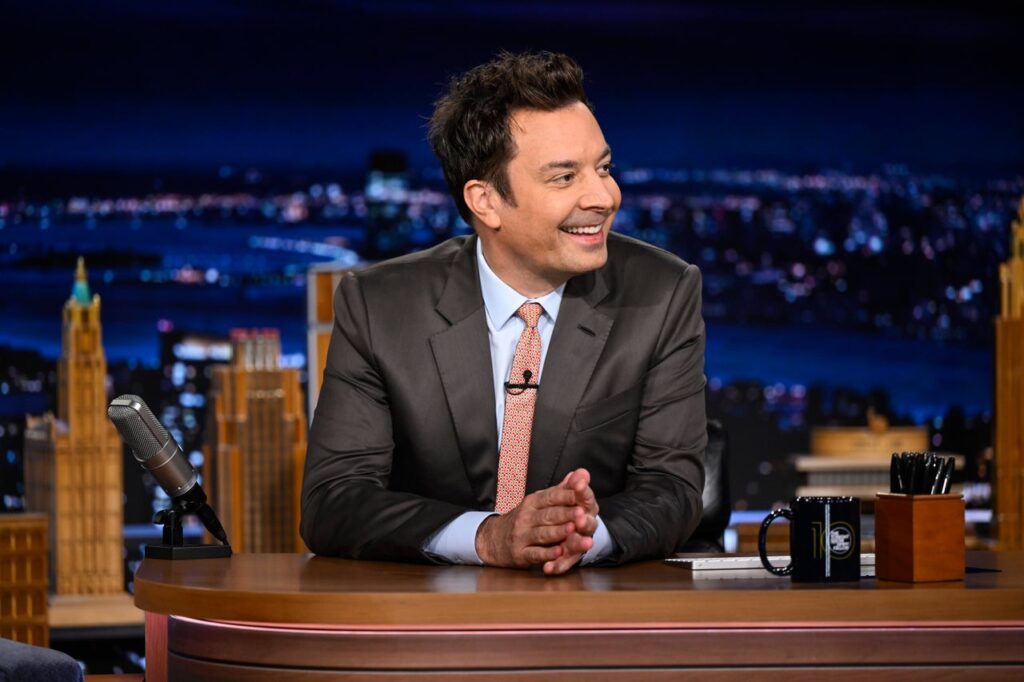Deborah Vance finally has the one thing she’s always wanted: She’s the host of a late night talk show. The only problem? She’s about 30 years too late.
It took three seasons of “Hacks,” the Max original sitcom about a beloved-but-washed-up comedian (Jean Smart as Vance), for Deborah to reclaim the spotlight and join the ranks of late night legends like Johnny Carson and David Letterman. But as soon as she sits down behind that desk at the start of Season 4, “Hacks” reveals a brutal twist: the late night talk show is already doomed.
Before Deborah’s new show can even debut, she’s summoned to the L.A. mansion of her boss Winnie (Helen Hunt) and given a stern warning.
“Late night’s in trouble,” Winnie says.
“We’ve read the trades,” Deborah replies.
“Oh, it’s way worse than that,” Winnie counters. “In the end, it wasn’t a choice between you and someone else to host, it was a choice between you and no one.” A moment later, she reveals that “the network was about ready to be done with the whole thing and replace it with a clip show.”
Throughout “Hacks” Season 4, Deborah struggles under the weight of this warning. Not only does she need to make a hit late night talk show, she also has to save the entire genre. This means pivoting wildly between formats and tones to find whatever audience remains on network television, while also dealing with constant requests for spinoffs and franchises. (“What’s your ‘Carpool Karaoke’?” Winnie asks incessantly.)
In the world of “Hacks,” it’s already a foregone conclusion that late night is doomed. Vance might succeed, but she’s ultimately just buying time for a genre of television that’s already extinct. And if you’ve been reading the actual Hollywood trades, that seems about right. In the age of Netflix, TikTok and “Fortnite,” network TV is bleeding viewers and slashing budgets — and late night television is no exception.
“Hacks” co-creator Paul Downs says that while the show may exaggerate a few things, it’s based on some very real observations of late night television and Hollywood.
“Everybody in television feels the seismic changes that are happening in the industry,” Downs tells HuffPost. “I hope late night’s not doomed in the way that I hope our entire entertainment industry is not doomed.”
In an attempt to figure out whether the late night talk show is on its deathbed or just going through a rough patch (and maybe take a bit of pressure off poor Deborah Vance), HuffPost spoke to Downs and three other Hollywood experts to figure out exactly what’s happening to the TV format that gave us comedy legends like Letterman and Conan O’Brien. Their answers reveal a beloved genre that’s been evolving from the very start, but may finally be running out of ways to survive.
The State Of Late Night
When you consider the facts, the future of late night looks bleak. In the past five years, viewership for “The Late Show with Stephen Colbert” (which currently leads the pack) dropped by 32%, plummeting from 3.81 million viewers per night on average in 2019 to 2.6 million in 2024, according to The Hollywood Reporter. In the same timespan, “Jimmy Kimmel Live!” dropped by 11% to 1.82 million nightly viewers, and “The Tonight Show Starring Jimmy Fallon” lost a whopping 41% of its audience, slipping to third place with just 1.43 million viewers. (For comparison, a typical 2005 episode of “The Tonight Show with Jay Leno” brought in 5.6 million viewers.)
With audiences shrinking and profits falling, it’s no surprise we’ve seen austerity across late night. Here are just a few examples:
In September 2024, “The Tonight Show” cut its Friday episode.
That same year, “Late Night with Seth Meyers” lost its house band.
After James Corden quit “The Late Late Show” in 2023, CBS replaced him with a cheaper-to-produce comedy game show, “After Midnight.”
When “After Midnight” host Taylor Tomlinson quit earlier this year, CBS canceled the show with no plans for a replacement.
It’s not looking great, and Jason Zinoman, a New York Times culture critic and author of the book “Letterman: The Last Giant of Late Night,” agrees that late night has seen better days.
“I don’t think we’re in a golden age,” Zinoman says.
That may be putting it lightly. It’s unclear whether late night’s audience is anywhere close to bottoming out. Experts are divided on exactly how bad the situation is, but everyone seems to agree it’s likely to get worse.
Is Late Night Doomed?

CBS Photo Archive via Getty Images
The problem facing late night is the same problem facing network TV in general: Fewer people are watching it. Television used to be one of the only things competing for your attention at home. Now, streaming, video games and smartphones are all fighting for our screen time. How can Fallon hope to compete?
“The number of people watching live TV is declining, no matter what the show is,” Downs says. “Because of what it means to make a living in late-stage capitalism, people find time to be entertained and to watch stories when they can.”
This shift in audience behavior may have a particularly damaging effect on the late night genre, however, since those shows rely on an audience that’s been primed all day to tune in for a specific guest each night.
“You can’t funnel them into late night shows the way you could in the past,” says Bill Carter, the author of multiple books about late night television and current editor-at-large at LateNighter.
Matthew Belloni, a long-time entertainment journalist who co-founded Puck and hosts the popular podcast “The Town,” describes the situation a bit more bluntly.
“The economic model that supported late night variety shows will either become obsolete or they will transition to streaming, which seems unlikely,” Belloni says.
Then again, perhaps it’s not all doom and gloom. Zinoman, a self-described “optimist” on this topic, argues that late night has a more intangible value for the TV networks that are keeping it afloat. Hosts like Colbert and Fallon aren’t just filling airspace between commercials; they’re brand mascots who can represent their networks at high-profile events and help promote other movies and shows.
When you factor in the online audience, late night might not even be in decline at all. During the 2024 election, Zinoman started adding together the TV ratings and YouTube streams for Meyers’ monologues and found something surprising: “You got numbers that were equal, in some cases greater, than at the height of Conan O’Brien and even Letterman.”
“I see more late night now than I ever have,” Downs agrees. “If something is really interesting or culturally sticky, I see it on YouTube or social media. In some ways, it feels more omnipresent than it ever has been, even though I’m not necessarily tuning in and watching a full broadcast.”
Of course, YouTube ads are also a lot cheaper than TV ads, so those viral clips don’t necessarily make up for lost profits. Still, it’s a promising sign that late night remains culturally relevant.
There are other positive signs, too. Carter points to Jon Stewart’s return to “The Daily Show” (albeit only once per week) as a promising shift. And then there’s John Mulaney, who brought his bizarre take on the format to Netflix with “Everybody’s Live with John Mulaney,” which airs live on the streamer on Wednesdays.

“Mulaney could have done TV shows or sitcoms,” Zinoman says. “He could have just stuck to stand-up specials. But he chose to do a late night show.”
Again, it’s not quite that simple. For one thing, “Everybody’s Live” only airs once per week, for a limited run. It’s a far cry from Netflix launching a real “Tonight Show” competitor. And, as Belloni points out, there’s no proof so far that Mulaney’s take on the genre will succeed.
“We don’t know the ratings for Mulaney yet,” he says, “but I imagine it is not a huge draw.”
Ultimately, the biggest problem facing the genre may simply be that the version of it so many people grew up on — and the version Deborah Vance in “Hacks” always wanted to be a part of — no longer exists. Once networks started posting their best late night clips on YouTube in pursuit of viral success, the magic of that original experience was gone.
“Staying up late to see this sort of secret thing, that was lost,” Zinoman laments. “That was the way I interacted with late night as a kid: staying up past my bedtime and watching this weird show ‘Late Night with Dave Letterman.’”
How Late Night Is Changing
As the audience for late night talk shows declines and budgets drop in tandem, the genre is changing, too. Part of that is to be expected. Anything that has existed for over half a century (“The Tonight Show” first debuted in 1954 with Steve Allen as its host) is bound to evolve. In the past few years, however, those changes seem to be accelerating.
Carter looks at the current late night TV landscape and sees fewer of the big swings the genre used to be known for.
“I detect that there’s much smaller budgets for these shows because they don’t do much ambitious comedy,” he says. “What’s the signature comedy bit for Stephen Colbert? I don’t know. I can’t identify one.”
But while late night may be taking fewer big swings on network television, the genre is still finding ways to push the limits elsewhere. Zinoman points to “Everybody’s Live with John Mulaney” as one example (a recent episode assembled a focus group of “Terminator 2” stunt performers), along with some online-only content from network shows like Meyers’ “Corrections” videos.
“There’s a lot more experimentation going on in late night right now,” Zinoman says. “There is more weird than ever before.”
The Future Of Late Night Talk Shows
The basic concept of a likeable comedian cracking topical jokes and interviewing celebrities feels like the kind of thing that will exist in some format forever, whether on network TV or a podcast. However, the specific fate of cultural staples like “The Tonight Show” and “The Late Show” suddenly seems far less certain.

In “Hacks,” the network seriously considers canceling its late night show altogether. Could that happen in real life?
“Everything’s at risk,” says Zinoman. “That said, I would be shocked if they got rid of ‘The Tonight Show.’ That’s such an old franchise.”
Belloni agrees, but takes it a step further.
“I think NBC’s 12:30 show [‘Late Night with Seth Meyers’] will probably go first,” he says. “Then ABC will likely not replace Jimmy Kimmel when he signs off. ‘The Tonight Show’ can continue, but they will likely bring the costs down significantly.”
Alternatively, Carter thinks the late night genre will hold on — at least until the TV channels that support it shut down completely.
“If the business shrinks to the point where they can’t sustain it, I suppose the network goes away,” Carter says. “But whatever exists, somebody will do a late night show. Because the formula works. When it’s good, it really works.”
As for Downs, he’s hopeful the format will find a way to survive. Not just for the sake of the next generation of comedians who need a place to cut their teeth, but for the societal value that late night hosts provide, especially at a time when America has never been more divided.
“Stephen Colbert goes into someone’s home at night and meets them where they are and is able to talk about what’s going on,” Downs says. “We live in a time when the administration is intentionally dividing us with hot-button issues. But sometimes you need to laugh, too. You need that spoonful of sugar to make the medicine go down.”
Content shared from www.huffpost.com.

